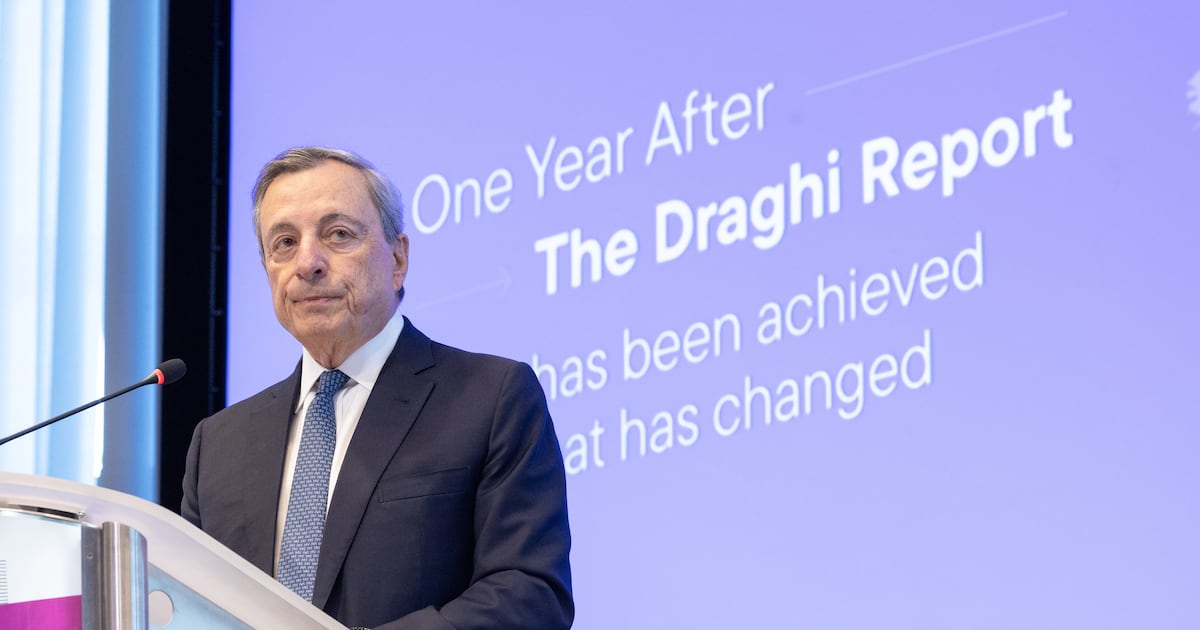Mario Draghi has warned that the European Union’s (EU) economic competitiveness is on the retreat due to “inaction” by Brussels and national capitals, a year after the former Italian premier set out recommendations on how to close the gap with global rivals such as the US and China.
Mr Draghi, who also served as president of the European Central Bank, was tasked by the European Commission to put forward a report on the bloc’s competitiveness in September last year. His 383 recommendations were adopted by the commission as a framework for overhauling the EU economy, but just a fraction of them have been implemented since, with the rest mired in political disagreement and bureaucratic wrangling.
“One year on, Europe is … in a harder place,” Mr Draghi told a news conference on Tuesday. “Our growth model is fading. Vulnerabilities are mounting … and we have been reminded, painfully, that inaction threatens not only our competitiveness but our sovereignty itself.”
“Too often, excuses are made for this slowness. We say it is simply how the EU is built. Sometimes inertia is even presented as respect for the rule of law,” Draghi added. “That is complacency.”
Ursula von der Leyen, the commission’s president, who asked Mr Draghi to write the report, admitted that the EU lacked “urgency” in advancing the competitiveness agenda.
“Our single market is far from complete … It should not be easier to find fortune across an ocean than across European borders,” she said. “We need urgent action to face urgent needs. Because our companies and workers can no longer wait.”
[ EU must be reformed to boost competitivenessOpens in new window ]
She pointed to a still-pending overhaul of the bloc’s merger rules and called on her competition chief, Teresa Ribera, to speed up the process. The lack of clarity on one of Mr Draghi’s key recommendations has sown uncertainty and frustrated industry and executives, who are waiting for signs from Brussels before making investment decisions.
“We will have to advance the publication of the merger guidelines. I think it’s now time to deliver”, said Ms von der Leyen.
 What can we potentially look forward to in Budget 2026?
What can we potentially look forward to in Budget 2026?Despite pledges to move quickly on Draghi’s suggestions, only 11.2 per cent of his ideas have been implemented over the past year, according to the European Policy Innovation Council, a Brussels-based think-tank. At the same time, Europe’s economy has continued to flatline, with the US economy expanding eight times faster than the EU’s in the second quarter of 2025.
European officials have argued that Ms von der Leyen and national EU leaders have been distracted with averting a trade war with the US, keeping US President Donald Trump’s administration engaged on Ukraine and striking the right balance with China.
But Mr Draghi warned that “Europe’s citizens and companies … express growing frustration. They are disappointed by how slowly the EU moves. They see us failing to match the speed of change elsewhere. They are ready to act, but fear governments have not grasped the gravity of the moment.” – Copyright The Financial Times Limited 2025
